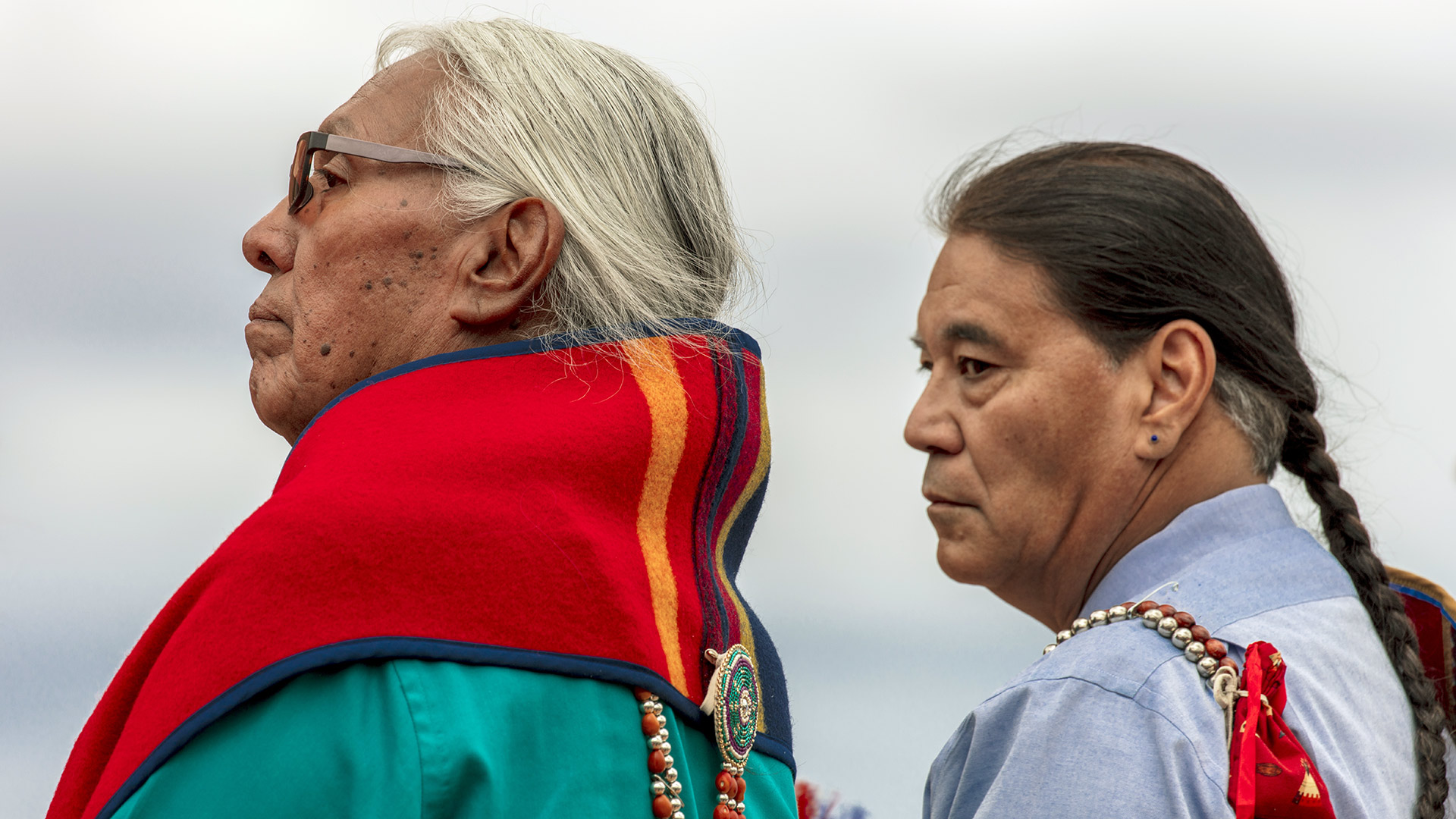
The Department of Justice is aiming to improve tribal law enforcement and public safety with a new grant program.
The DOJ recently announced the provision of $246 million in grants to support Native American and Alaskan Native victims of crime and to boost public safety.
“Each year, this event serves as a necessary reminder of the violence perpetrated against women in tribal communities across the country, as well as an important opportunity to confront this public safety crisis with the urgency it demands,” Attorney General Merrick B. Garland said in a statement. “The Justice Department remains committed to honoring our nation-to-nation partnerships and to making tribal communities safer.”
The announcement came during the federal government’s annual Violence Against Women Tribal Consultation conference held in Anchorage.
The conference is required by the Violence Against Women Act of 1994 and authorizes the administration of funds to address violent crimes disproportionately affecting indigenous women.
The consultation also aims to improve criminal justice information systems and improve access to victims’ services.
“There’s never enough funding, but we want to do whatever we can to get funds to the tribes,” said Allison Randall, the acting director for the Justice’s Office on Violence Against Women.
The DOJ said the conference focused on issues such as missing persons, stalking, sexual violence and domestic violence against indigenous women, as well as soliciting recommendations from tribal leaders on how to appropriate funds.
“I want to see it go directly to the tribes. I don’t want it to go to the state,” said Joel Jackson, council president of the Tlingit Organized Village of Kake in Southeast Alaska.
Lenora Hootch, tribal leader of the Native Village of Emmonak, a Yup’ik government on the Lower Yukon River, was also at the conference.
She said tribes need more resources to develop their own law enforcement forces instead of relying on state agencies.
“The state of Alaska has failed in its responsibility to provide adequate and timely law enforcement and judicial services to Alaska Natives in rural Alaska, including the villages in our region of the state,” Hootch said.
Hootch noted that the village has two police officers and a state trooper, but the trooper is responsible for other villages in the region, and the service is limited.
“After 5 p.m., the answering machine is on, and it is directed to the Fairbanks dispatcher. Five hundred miles away, the dispatcher asks, ‘What’s going on?’ And the caller responds, ‘We need help right now. Family violence. Children involved.’ Then we wait to learn if anyone will come. Too many times, no one comes.”
U.S. lawmakers are also intent on improving tribal law enforcement agencies.
Arizona Representative Ruben Gallego of Arizona and Senator Catherine Cortez Masto of Nevada recently re-introduced a bill to provide greater resources for tribal law enforcement agencies and improve data sharing between tribes and state and federal authorities.
The bill, initially formulated in 2019, would allow the federal Bureau of Indian Affairs to conduct background checks on tribal police applicants and establish grant programs to coordinate missing and murdered persons cases.
The legislation would also require a government accountability report to monitor how state and local agencies collect evidence for cases on tribal lands.
“The federal government has for years failed to provide Indian Country the resources needed to ensure public safety and support tribal law enforcement agencies,” Gallego said. “In the aftermath of the Oklahoma v. Castro-Huerta decision, finding solutions that support tribal justice systems is more important than ever.”
Gallego referred to a recent Supreme Court case that gave state law enforcement agencies the ability to prosecute non-Native people suspected of committing crimes on Native lands, which critics argued threatens tribal territorial sovereignty.
South Dakota Attorney General Mark Vargo plans to address the deficiencies when working with tribal law enforcement by creating a special position devoted to looking for missing indigenous persons and coordinating with indigenous police.
In 2021, the state legislature created the “liaison” position to work with federal, local and tribal law enforcement to address the high rate of homicides and disappearances on tribal lands.
Vargo hopes to hire someone for the position in the coming months.





